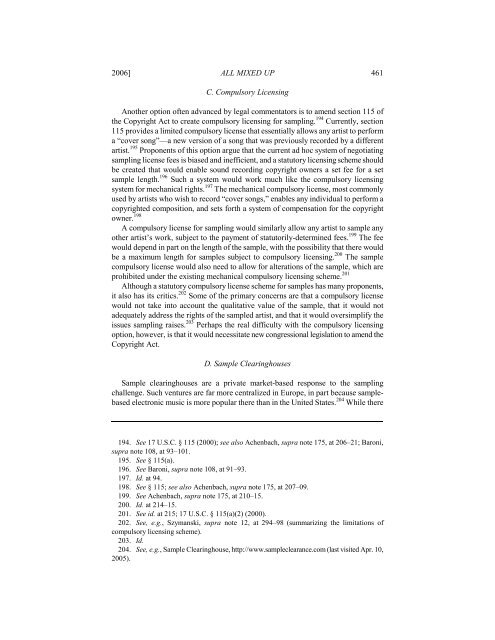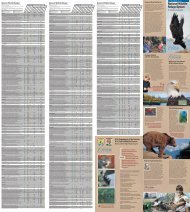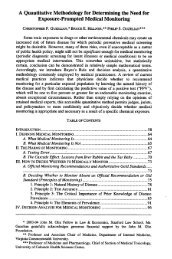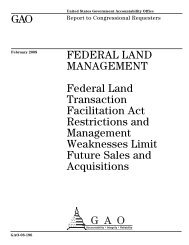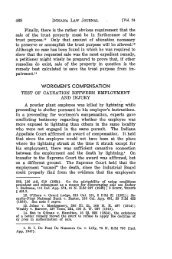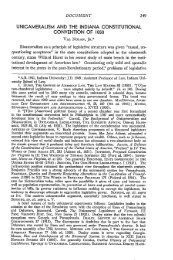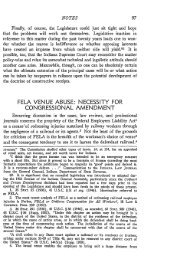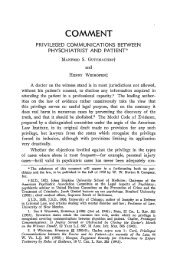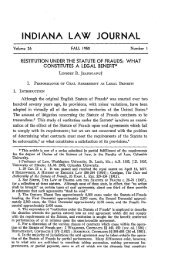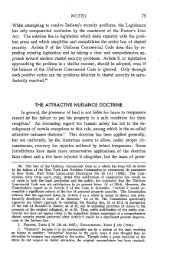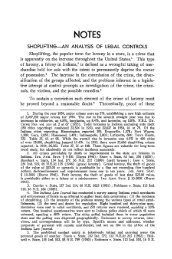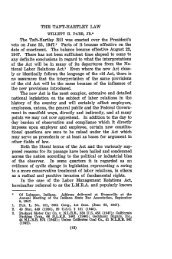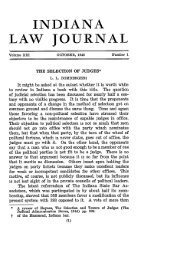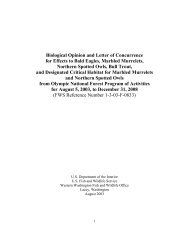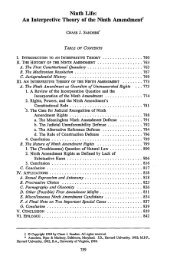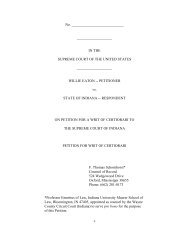Bridgeport Music v. Dimension Films - Indiana University School of ...
Bridgeport Music v. Dimension Films - Indiana University School of ...
Bridgeport Music v. Dimension Films - Indiana University School of ...
You also want an ePaper? Increase the reach of your titles
YUMPU automatically turns print PDFs into web optimized ePapers that Google loves.
2006] ALL MIXED UP 461<br />
C. Compulsory Licensing<br />
Another option <strong>of</strong>ten advanced by legal commentators is to amend section 115 <strong>of</strong><br />
the Copyright Act to create compulsory licensing for sampling. 194 Currently, section<br />
115 provides a limited compulsory license that essentially allows any artist to perform<br />
a “cover song”—a new version <strong>of</strong> a song that was previously recorded by a different<br />
artist. 195 Proponents <strong>of</strong> this option argue that the current ad hoc system <strong>of</strong> negotiating<br />
sampling license fees is biased and inefficient, and a statutory licensing scheme should<br />
be created that would enable sound recording copyright owners a set fee for a set<br />
sample length. 196 Such a system would work much like the compulsory licensing<br />
system for mechanical rights. 197 The mechanical compulsory license, most commonly<br />
used by artists who wish to record “cover songs,” enables any individual to perform a<br />
copyrighted composition, and sets forth a system <strong>of</strong> compensation for the copyright<br />
owner. 198<br />
A compulsory license for sampling would similarly allow any artist to sample any<br />
other artist’s work, subject to the payment <strong>of</strong> statutorily-determined fees. 199 The fee<br />
would depend in part on the length <strong>of</strong> the sample, with the possibility that there would<br />
be a maximum length for samples subject to compulsory licensing. 200 The sample<br />
compulsory license would also need to allow for alterations <strong>of</strong> the sample, which are<br />
prohibited under the existing mechanical compulsory licensing scheme. 201<br />
Although a statutory compulsory license scheme for samples has many proponents,<br />
it also has its critics. 202 Some <strong>of</strong> the primary concerns are that a compulsory license<br />
would not take into account the qualitative value <strong>of</strong> the sample, that it would not<br />
adequately address the rights <strong>of</strong> the sampled artist, and that it would oversimplify the<br />
issues sampling raises. 203 Perhaps the real difficulty with the compulsory licensing<br />
option, however, is that it would necessitate new congressional legislation to amend the<br />
Copyright Act.<br />
D. Sample Clearinghouses<br />
Sample clearinghouses are a private market-based response to the sampling<br />
challenge. Such ventures are far more centralized in Europe, in part because samplebased<br />
electronic music is more popular there than in the United States. 204 While there<br />
194. See 17 U.S.C. § 115 (2000); see also Achenbach, supra note 175, at 206–21; Baroni,<br />
supra note 108, at 93–101.<br />
195. See § 115(a).<br />
196. See Baroni, supra note 108, at 91–93.<br />
197. Id. at 94.<br />
198. See § 115; see also Achenbach, supra note 175, at 207–09.<br />
199. See Achenbach, supra note 175, at 210–15.<br />
200. Id. at 214–15.<br />
201. See id. at 215; 17 U.S.C. § 115(a)(2) (2000).<br />
202. See, e.g., Szymanski, supra note 12, at 294–98 (summarizing the limitations <strong>of</strong><br />
compulsory licensing scheme).<br />
203. Id.<br />
204. See, e.g., Sample Clearinghouse, http://www.sampleclearance.com (last visited Apr. 10,<br />
2005).


